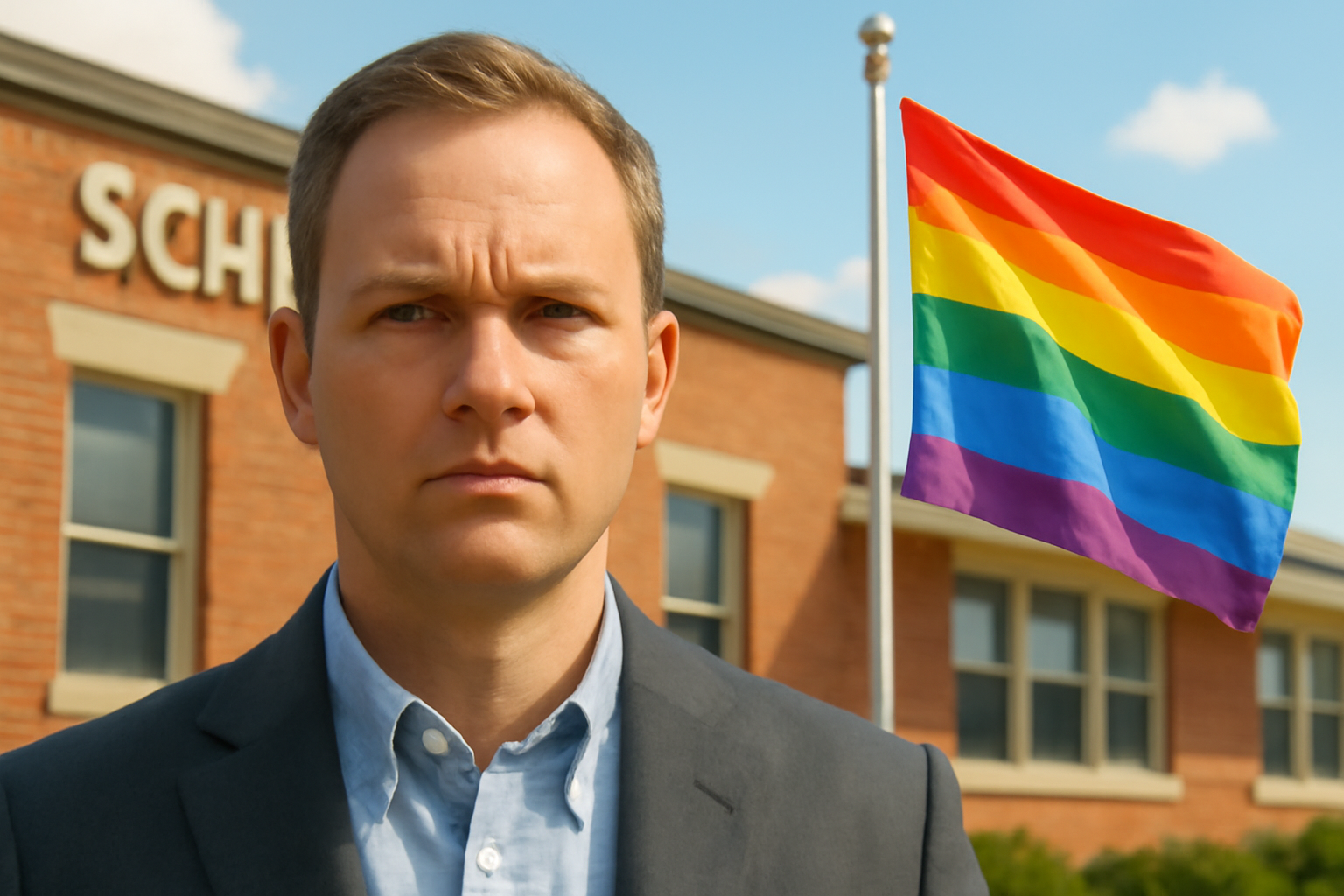
The state of Utah has recently passed a controversial piece of legislation that has sparked significant discussion and debate across various communities, particularly among LGBTQ+ advocates and allies. This legislation effectively restricts the display of Pride flags in public schools, a move that many perceive as a step backward in the ongoing fight for inclusivity and representation.
Supporters of the new law argue that it is designed to maintain neutrality in educational environments and prevent any form of political or ideological influence that they believe might arise from displaying specific flags. They claim that public schools should remain apolitical spaces where all students can feel comfortable, without the presence of symbols that might be interpreted as divisive or partisan. However, critics of this legislation argue that the Pride flag is not merely a political symbol but rather a representation of identity, community, and support for LGBTQ+ individuals.
The Background
The decision to ban Pride flags in public schools did not arise overnight. It followed months of heated debates among lawmakers, educators, and community members. Proponents of the ban cited the need for uniformity in school environments and suggested that allowing one type of flag could open the door to all kinds of symbols, some of which might be less universally accepted. However, this argument has been met with significant opposition.
Opponents point out that the Pride flag is a symbol of diversity and inclusion, values that are integral to educational communities. They argue that such a ban might inadvertently send a message of exclusion to LGBTQ+ students, who often look to symbols like the Pride flag for affirmation and acceptance.
Impact on the LGBTQ+ Community
The LGBTQ+ community in Utah has expressed deep concern over this legislation. For many, the Pride flag represents not just a celebration of diversity, but a hard-won symbol of their fight for equality and recognition. Removing this symbol from public schools could potentially create an environment where LGBTQ+ students feel less supported and more vulnerable.
Many advocates worry that the absence of the Pride flag in schools might embolden anti-LGBTQ+ sentiments and lead to increased stigma and discrimination. They emphasize the importance of visible symbols in fostering a sense of belonging and community, particularly for young people who may be struggling with their identities.
Reactions from Educators
Educators across the state have had mixed reactions to the new law. Some teachers feel that this measure is necessary to avoid potential conflicts within the school setting, while others believe it undermines the principles of inclusivity they strive to teach.
Several teachers have voiced their concerns that the law could impede their ability to create a welcoming and supportive environment for all students. They argue that symbols like the Pride flag play a crucial role in helping students feel seen and valued, and that removing such symbols might hinder efforts to promote a positive school culture.
Looking Ahead
As the debate over the Pride flag in Utah's public schools continues, many are hopeful that dialogue and understanding will lead to a resolution that respects diversity while addressing concerns about neutrality in educational settings.
Some community members are advocating for compromise solutions, such as allowing the display of the Pride flag alongside other flags that represent different groups within the school community. This approach, they argue, could reinforce the idea that schools are places where all students are respected and accepted, regardless of their background or identity.
Ultimately, the controversy surrounding this legislation highlights the ongoing challenges faced by LGBTQ+ individuals in achieving full acceptance and recognition within society. As Utah navigates this complex issue, it is clear that the conversation about representation, inclusivity, and neutrality in public spaces is far from over.
The outcome of this debate will likely have implications not only for Utah but also for other states considering similar measures. It serves as a reminder of the importance of vigilance and advocacy in the pursuit of equality and justice for all members of the LGBTQ+ community.
Related Posts
Triumphant Trans Woman Wins Legal Battle and Inspires Others to Stand Up for Their Rights
Breaking new ground: a landmark victory in transgender rights After battling in courtrooms and enduring endless challenges, Diana Portillo, a transgender woman, has secured a monumental victory in her decade-long fight against workplace discrimination. The result? Nearly $1 million awarded in a historic settlement. But this isn't just a win on paper—it represents a powerful precedent in combati [...]
Pride Month in Latin America: Protests and Demands for Equality
**Celebrating Pride and advocating LGBTQ+ rights in Latin America** Pride Month in Latin America was a lively mix where celebration met activism. Communities united, not just throwing a party but making a stand—demanding equality and pushing governments toward better protection and rights recognition. Throughout Latin America, pride events erupted in marches and cultural displays, each with a c [...]
Transgender Erasure Actions Implemented by National Park Service
```html Trump administration's impact on national park service and transgender recognition The Trump administration made notable moves in undermining transgender representation, which included directing agencies like National Park Service not include "T" and "Q" when they refered “LGBTQ” in any official communication. This move seems part a broader plan by this administration aimed at reducin [...]